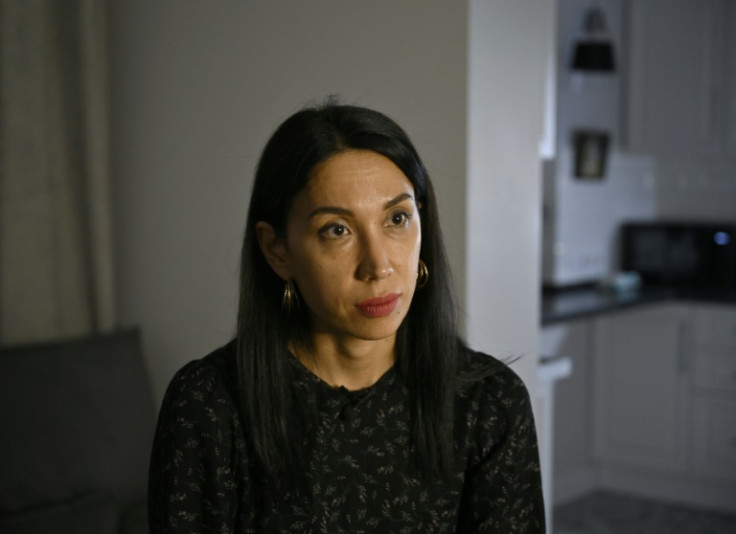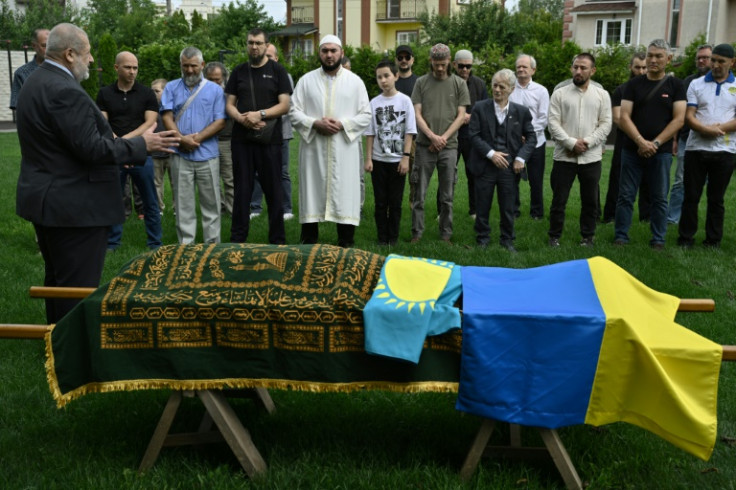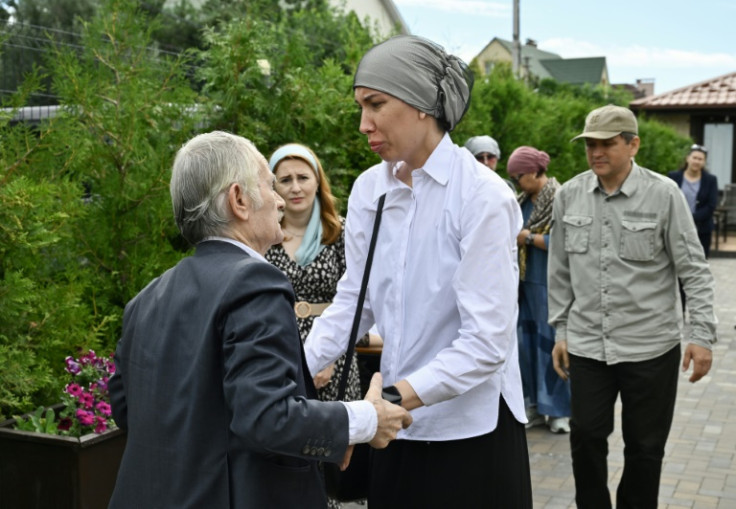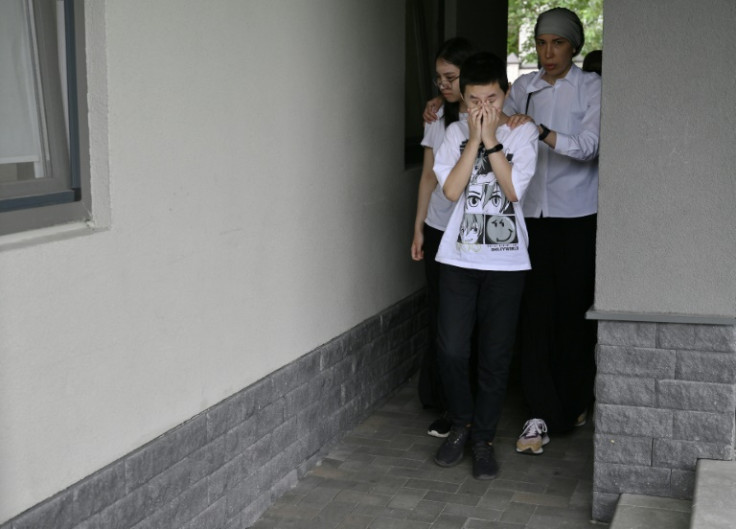Ukraine Was Their Refuge. Then Came War, And Her Husband's Killer

The radio was playing and summer sun was streaming through the car windows when Natalya Sadykova and her husband Aydos pulled into their leafy courtyard in Kyiv where a gunman was waiting.
The couple -- exiled activists from Kazakhstan given asylum in Ukraine a decade earlier -- had just finished some errands and were planning to take their children on holiday for the first time since Russia invaded in early 2022.
The pistol was fitted with a silencer, Sadykova said, as she recounted the day in June when her life was turned upside down.
"The bullet broke the glass and hit Aydos right in the temple. There was just one shot," she told AFP wide-eyed in her kitchen in Kyiv.
"Aydos immediately lost consciousness. He slumped over the seat belt. I started screaming," she recounted.
Sadykova spent the next 13 days by her husband's side in hospital as he battled for his life.
"Miracles do happen. I was hoping for one. But unfortunately, there wasn't one this time," she said.
The 55-year-old opposition figure had gained more than one million followers on social media with videos critical of Kazakhstan's ruling elite.
His death in hospital on July 2 served as a painful reminder the of the sporadic but brutal attacks that marred Ukraine's political landscape after the Soviet collapse.
And it spotlighted the dangers outspoken critics face -- even in exile -- for confronting authoritarian regimes across the former Soviet Union.
The family moved to Ukraine in 2014 as widespread political anger was ballooning into the historic Maidan protests that led to the ouster of the pro-Kremlin leader and precipitated Russia's invasion.
Kazakh authorities were pursuing a criminal probe over Sadykova's journalism, and Aydos -- already a target for law enforcement -- was drawn to the protests in Ukraine, hoping they might offer a framework for change back home.
"Maidan, I think, inspired everybody in the former Soviet space, because Maidan symbolised freedom, democracy, and the possibility of peaceful overthrow of the government," Sadykova told AFP.
"That was his dream -- a free democratic Kazakhstan".
It was "probably love at first sight," she said.
"At some point I realised that I just couldn't live without him".
Their first child was born while Aydos was serving two years in prison on hooliganism charges that his supporters say were politically motivated.
They faced further harassment later in Kyiv, when their home address was leaked online and they found a tracking device on their car.
On social media, Sadykova said Kazakh leader Kassym-Jomart Tokayev bore ultimate responsibility for her husband's killing.
Ukraine said two Kazakh citizens -- reportedly former police officers with alleged links to the security services -- planned and executed the attack before fleeing the country the day of the killing.
One later handed himself in to authorities in Kazakhstan; the second remains at large, authorities there said.
The Central Asian country's largest city, Almaty, barred mourners from attending a memorial ceremony, local media reported.
International rights groups urged a full and transparent probe.
Three days after the funeral -- while her children's screams were still ringing in her ears -- Sadykova's grief and the war and collided.
Russian missiles ripped open the Ohmatdyt paediatric hospital in Kyiv near their home, sending loud booms and panic throughout the city.
"I was in such a state that I didn't care if the missiles hit us or not. One missile flew right over our house," she told AFP.
For now, even as Russian drones and missiles continue to terrorise her adopted homeland, Sadykova wants to remain in Ukraine.
Her children feel at home in Kyiv and she wants to remain privy to the ongoing police investigation.
And then her husband is buried nearby, a fact that even months after his violent death, she is still struggling to come to terms with.
"I had never lost anyone before, and when I did, it was the most important person in my life," she said.
Grief was an "abyss," she added.
"There are two things keeping me alive right now: taking care of my kids and revenge. Revenge. I really want all those monsters that did this to be punished."



© Copyright AFP 2025. All rights reserved.





















